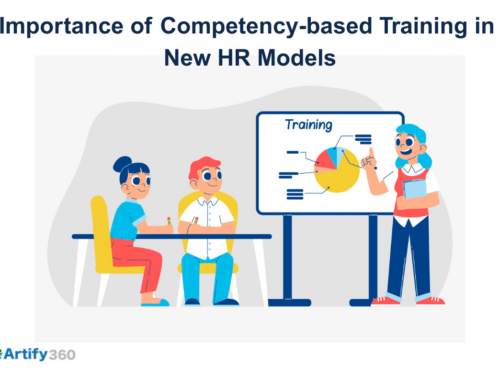Imagine you are the owner of a small business. As your business grows, you realize you need to bring on more employees to keep up with demand. This is a great problem to have, but it also introduces new challenges. How can you track all of your employees’ hours and ensure that they are being paid the right amount? How can you make sure new hires are the best possible fit for your company?
Enter HRMS: a system that can help you manage all of your employees’ data. With HRMS, you can track employee hours, review resumes, and more. In other words, HRMS can help you take your business to the next level.
What Is HRMS Software?
An HRMS, or human resources management system, is a software application that automates the process of tracking employee data. From new hires to terminations, an HRMS can manage it all. But an HRMS doesn’t just automate data entry—it also provides a range of features that can help businesses expand.
For example, an HRMS can help you track employee training and certifications. That way, you always know who is authorized to work on certain projects and who has the qualifications to do so. An HRMS can also help you manage payroll, ensuring that employees are paid correctly and on time. And finally, an HRMS can keep track of employee performance metrics, providing you with insights that can help you improve your business.
What Are the Key Benefits of an HRMS?
When it comes to business expansion, an HRMS can provide a number of key benefits. Primarily, an HRMS can help you keep track of your employee data. This includes tracking employee numbers, contact information, job titles, pay rates, and more.
An HRMS can also help you manage payroll. This includes processing new hires, generating paychecks, and managing tax withholdings. Additionally, an HRMS can automate benefits administration. This includes tracking employee eligibility for benefits, enrolling employees in benefits, and processing claims.
All of these features can help to keep your business running smoothly and efficiently. By automating many of the manual tasks associated with HR, you can focus on more important aspects of business expansion.
How Does an HRMS Help in Expanding a Business?
An HRMS can help in expanding a business in two ways. The first way is by automating the process of hiring employees. The second way is by tracking employee performance and managing payroll.
Automating the process of hiring employees can save your business time and money. You can find the best candidates for the job by using filters to search through resumes and by conducting interviews electronically. This will also help you stay organized and keep track of who has been interviewed, who has been hired, and who is still under consideration.
Tracking employee performance and managing payroll can help you identify areas where your employees need improvement and identify top performers. You can also use this information to create incentive programs that will motivate your employees to achieve their goals.
Key Features of a Modern HRMS
A modern HRMS is essential in helping businesses expand. It offers a wealth of features that are designed to make it easier for you to manage your human resources. Such features include tracking employee performance, managing vacation, and attendance, as well as payroll processing.
It also allows you to easily create and manage employee profiles, store important documents, and track their progress and performance over time. This is all possible with the help of user-friendly dashboards and analytics tools.
Moreover, what makes a modern HRMS so attractive is that it can be tailored to meet your exact needs. Depending on the features you need, you can easily find an HRMS that fits your requirements precisely. And since these systems are cloud-based, they’re always up-to-date with the latest technology advancements.
Reasons Why an HRMS Is Essential for Business Growth
When it comes to expanding a business, there are many things to consider—but one of the most essential is HRMS.
A Human Resources Management System (HRMS) is a software solution that automates tedious HR tasks, giving you more time for growth-oriented activities. As your business expands, it’s important to have an effective way to manage the influx of new employees and ensure that your processes are compliant with state and federal regulations.
Your HRMS should be able to help you with recruitment by having structured onboarding processes and templates for job postings. Additionally, having an HRMS can help you manage employee training and development initiatives, so you’re sure that all your new hires are up to speed with the company’s culture and goals. Finally, if you have different locations or teams across the country, an HRMS can help you keep track of performance evaluations and other employee-related tasks in a streamlined manner. In short, an HRMS is essential for any business that wants to take its growth strategy seriously.
The Final Thoughts
In conclusion, it’s evident that HRMS software can play a pivotal role in the growth and success of a business. By automating and managing essential HR processes, an HRMS can help a business to optimize its operations, empower its employees, and align its workforce with its strategic goals. With the right HRMS in place, a business can realize significant improvements in performance and efficiency.






